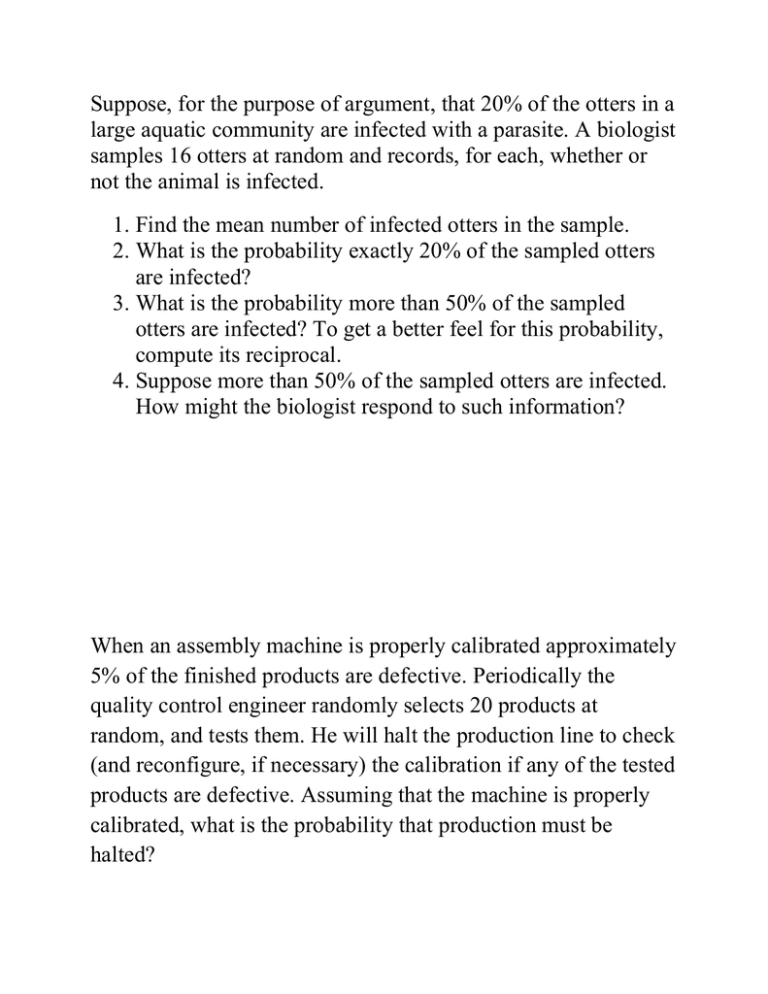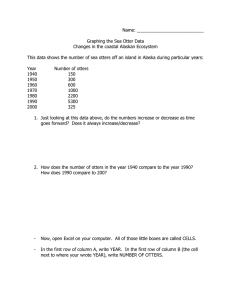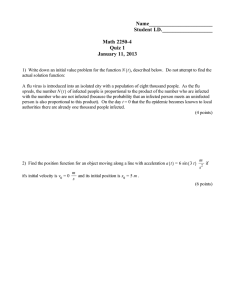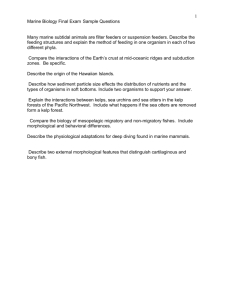Suppose, for the purpose of argument, that 20% of the... large aquatic community are infected with a parasite. A biologist
advertisement

Suppose, for the purpose of argument, that 20% of the otters in a large aquatic community are infected with a parasite. A biologist samples 16 otters at random and records, for each, whether or not the animal is infected. 1. Find the mean number of infected otters in the sample. 2. What is the probability exactly 20% of the sampled otters are infected? 3. What is the probability more than 50% of the sampled otters are infected? To get a better feel for this probability, compute its reciprocal. 4. Suppose more than 50% of the sampled otters are infected. How might the biologist respond to such information? When an assembly machine is properly calibrated approximately 5% of the finished products are defective. Periodically the quality control engineer randomly selects 20 products at random, and tests them. He will halt the production line to check (and reconfigure, if necessary) the calibration if any of the tested products are defective. Assuming that the machine is properly calibrated, what is the probability that production must be halted?




